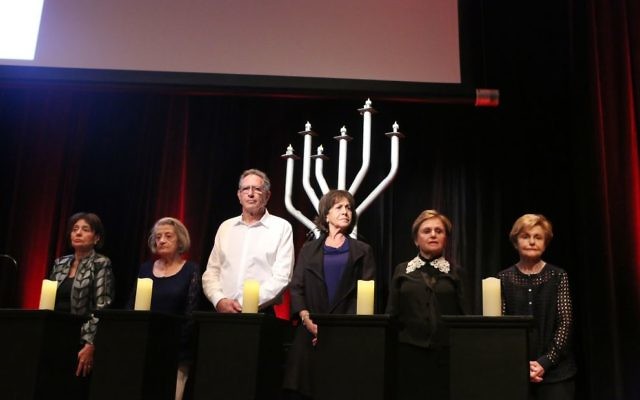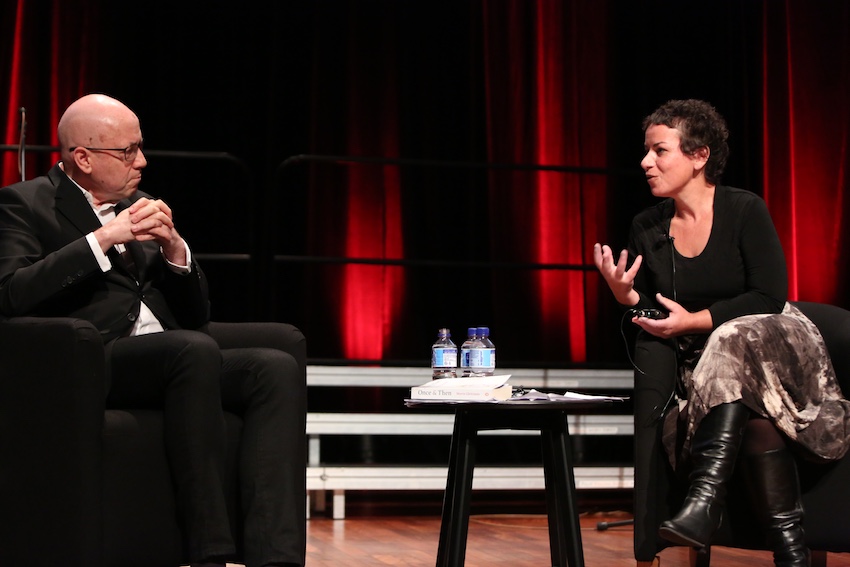Sydney remembers the six million
“THE single most important thing that the Jewish community does is remember the victims of the Holocaust,” said NSW Jewish Board of Deputies president Jeremy Spinak at the Yom Hashoah communal commemoration.

“THE single most important thing that the Jewish community does is remember the victims of the Holocaust,” said NSW Jewish Board of Deputies president Jeremy Spinak at the Yom Hashoah communal commemoration at UNSW on Sunday.
The focus of this year’s commemoration was children and the Holocaust. The audience heard moving testimony from child survivor Charlotte Vidor, who described hiding in a cupboard while the soldiers liquidated the nearby ghetto, and then escaping with the help of a janitor. She hid for more than two years, and when she was liberated, her legs were so atrophied that she couldn’t walk outside.
“Except for a miracle, I cannot say how it was that I survived,” Vidor said.
She was then joined by five other child survivors to light six candles in remembrance of the six million Jews that were murdered during the Holocaust, among them 1.5 million Jewish children that never had a chance to grow up.
Keynote speaker and acclaimed children’s author Morris Gleitzman told The AJN, “I’ve always been struck by how rarely, if ever, children start wars, and how always they are caught up in the centre of tragedies and loss that wars involve.”
Gleitzman is the author of children’s book series Once, in which a young Polish boy searched for his bookshop-owning parents after he sees Nazis burning books from the Catholic orphanage library in which he lives. The series is inspired by the true story of Janusz Korczak, who sheltered Jewish children in a Warsaw orphanage and was murdered in Treblinka in 1942.
“As someone who sees himself as being a voice for children, I thought it was important to be voice for the millions of children who, through no fault of their own, are so centrally involved in these sad parts of history,” Gleitzman said.
In conversation with Holocaust studies lecturer Dr Avril Alba, Gleitzman said that young people must look fearlessly and directly into the worst of humanity, and that it would be a great disservice to hide the worst of the world from young people while clinging to the illusion of safety and innocence.
Gleitzman, who spent years reading testimonies of child survivors before he started writing Once, said that his books are intended to be a launching pad and a bridge to the real voices of the Holocaust.
The audience also heard from Judy Kaye, whose grandparents Laszlo and Jolan Michnay were named Righteous Among The Nations. She told the story of how the Michnay family lived in a Seventh Day Adventist House in Budapest and saved more than 50 Jews by hiding them in cellars, attics, churches, under staircases and giving away their own identity papers to Jewish families fleeing Hungary.
Israeli-Australian singer-songwriter Lior brought the audience to its feet with an original acoustic song that he wrote in memory of his grandfather, who was a sniper in the Red Army, and his own rendition of Avinu Malkeinu.
YAEL BRENDER


comments